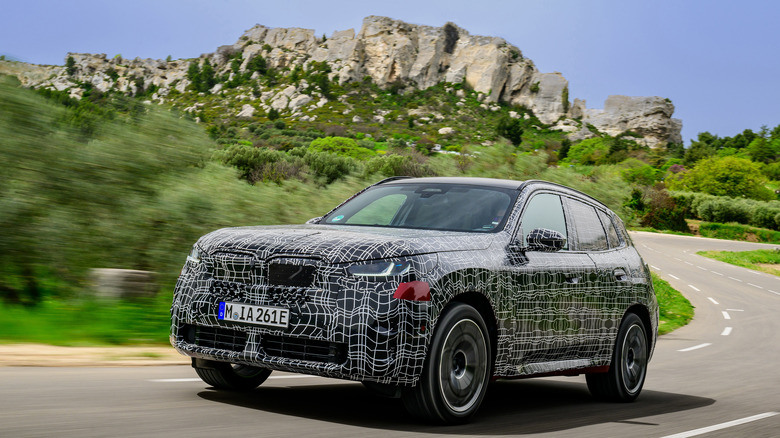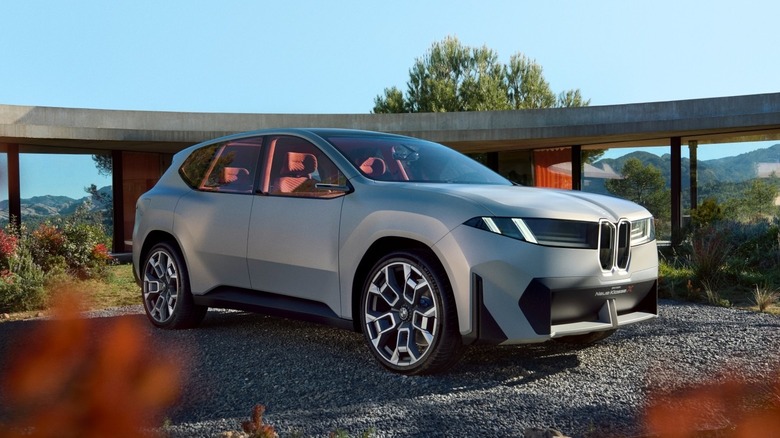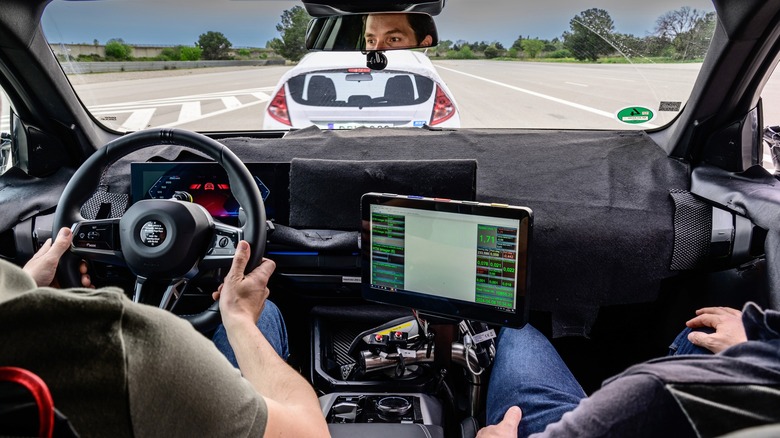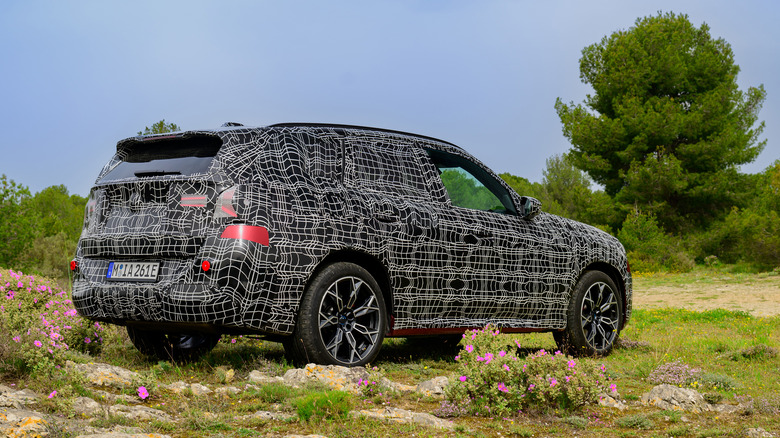All The Rumors About The 2025 BMW X3 We've Seen So Far
The fourth generation of the BMW X3 Sports Activity Vehicle (as BMW calls it) has been eagerly awaited by its fans and other prospective customers. While there have been many rumors swirling around the introduction of this mid-size SUV, details about it appear to be coming into sharper focus.
The BMW X3 has undergone several changes and revisions throughout its history. The first-generation X3 was based on the 3-series platform and was produced from 2003 to 2010. The second-generation X3 grew in size and was almost as large as the first-generation X5. It was produced from 2010 to 2017. The third and current generation X3 has been produced since 2017, uses technology from the 5-series sedan and actually weighs less than the previous generation.
The new, fourth-generation X3 will be introduced within a few weeks as a 2025 model. According to BMW, the X3 has already gone through extensive testing in both extremely cold and extremely hot weather conditions. It has also completed the final tuning phase for all of its driver assistance and chassis control systems at BMW's test center in southern France.
Here's what we know about the BMW X3 drivetrain
As far as what will power the next generation of the BMW X3, BMW has not released much specific information. The current X3 lineup uses a four-cylinder, 248 horsepower turbocharged engine, with the M performance models offering upgrades to six-cylinder turbo engines of either 382 or 473 horsepower. These engines could very likely remain in the lineup. There might be conventional hybrid and/or plug-in hybrid versions of both of these powertrains, with the four-cylinder version emphasizing better fuel economy and the six-cylinder M version using a powerful electric motor to add even more performance. One powertrain fact that we do know: BMW has confirmed that a plug-in hybrid (PHEV) version of the new X3 will be produced for global export at its plant in South Africa.
As far as whether there will be a battery-electric version of the new BMW X3, the answer is yes and no. While there will be no battery-electric version of the new X3, the mid-size BMW SUV EV duties will be taken up by the upcoming Neue Klasse X, which was recently introduced as a concept. It will be produced starting in 2025 at BMW's plant in Hungary.
Improvements are coming to the BMW X3 chassis dynamics and digital features
BMW has improved the dynamic and digital capabilities of the X3. Weight reduction and aerodynamic improvements (featuring a drag coefficient of 0.27 and reduced lift at the rear axle) have contributed significantly to these improvements. Other changes include a wider track, a more rigid body structure, improvements to the chassis kinematics, a more direct steering ratio, and anti-roll bar improvements. These upgrades contribute to much better directional stability and cornering while maintaining ride comfort. An optional suspension setup, known as Adaptive Chassis, features electronically controlled shock absorbers with two selectable settings.
Inside the new X3, a full-width digital display screen will likely greet the driver. The X3 will feature the latest version of iDrive, which will be based on BMW's OS 9. This system provides an expanded selection of driver assistance and automated parking features such as Parking and Maneuver Assistant, which allows the driver to control and park the X3 from outside the vehicle, using a smartphone.
Here are some other rumors/facts about the BMW X3
The official debut of the new BMW X3 will probably happen in June, with the first X3 vehicles reaching dealers a few months later. Based on our current inflationary pricing trends and additional features being added, the new BMW X3 will probably come in a bit higher than the current model X3, which starts at $46,900 for the rear-wheel drive base model and tops out at $75,500 for the 473-horsepower X3 M. Somewhere in the vicinity of $50,000 as a base price for the new entry-level X3 model looks likely.
Since nearly all of BMW's SUVs/SAVs are made at its huge Spartanburg, South Carolina plant, that location will continue to be its main production base. As mentioned above, the PHEV version will be produced in the Rosslyn, South Africa factory, while the battery electric "Neue Klasse X" version will be made in the Debrecen, Hungary plant.



